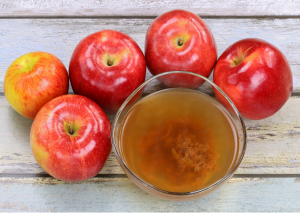 Healthy digestion is essential so we can break down the food we eat, and the body can extract and absorb crucial nutrients it needs to keep functioning effectively and for our overall health and sense of wellbeing. Benefits of healthy digestion have been shown to include more robust immunity, more energy, increased removal of toxins from the body, healthier-looking skin and hair, better mood, etc. Healthy digestion also helps prevent digestive symptoms such as flatulence, bloating, constipation, diarrhoea, nausea, etc.
Healthy digestion is essential so we can break down the food we eat, and the body can extract and absorb crucial nutrients it needs to keep functioning effectively and for our overall health and sense of wellbeing. Benefits of healthy digestion have been shown to include more robust immunity, more energy, increased removal of toxins from the body, healthier-looking skin and hair, better mood, etc. Healthy digestion also helps prevent digestive symptoms such as flatulence, bloating, constipation, diarrhoea, nausea, etc.
Following these few tips to support healthy digestion may help you lower the risk of digestive upset.
1) Avoid eating when you are stressed, anxious, or in a rush
Eating while feeling stressed, anxious or in a hurry causes the sympathetic nervous system, the nervous system responsible for the “fight or flight” response, to become more dominant. Whereas the parasympathetic nervous system, which has the opposite role and is responsible for the rest and digest function, slows down. As a result, gastric secretion and the gut motility that facilitates the digestion and transit of food through the digestive system are reduced, which could contribute to symptoms such as bloating, constipation, stomach pains, etc.

2) Take your time to chew food well
Chewing food well is an essential part of the first (oral) stage of the digestive process, as disturbances in this stage could disrupt the whole process of digestion. Taking time to chew food well helps break down food into smaller particles and trigger the release of saliva and enzymes that begin the digestion process. Smaller particles are then easier passed through the oesophagus into the stomach and then into the small intestine for further digestion. Chewing also kick starts stomach acid production, which activates enzymes needed for proper breakdown and digestion of food, and supports the absorption of nutrients from food. Stomach acid is also very acidic, protecting us from harmful bacteria from food entering the gut. Therefore, not chewing food properly could reduce the body’s ability to absorb nutrients, disturb the gut bacteria balance, allow larger particles to enter the digestive tract, and contribute to gastrointestinal symptoms such as flatulence, bloating , stomach pain, constipation, etc.
3) Add fibre rich foods
Fibre is the part of plants found in food such as oats, barley, beans, lentils, nuts, seeds, fruits, vegetables, and whole-grain. Fibre doesn’t get digested and absorbed by the body like carbohydrates, proteins and fats. Still, it has been shown to have many health benefits, including keeping our digestive system healthy. Fibre helps increase the stool’s size and weight, making the stool softer and easier to pass, thus keeping our bowel movements regular and helping remove food products, toxins, and other waste from the body. Adults should aim for 30g of fibre a day. If you are not used to having fibre in your diet, introduce fibre-rich foods gradually and ensure regular fluid intake throughout the day to avoid symptoms such as flatulence, bloating, or constipation. These symptoms’ likeliness could increase when you have too much fibre or eat fibre-rich foods quickly, within a short period of time. Therefore, if you experience any of these symptoms, reduce your fibre intake and re-introduce fibre-rich foods slowly, spread out throughout the day.
4) Include probiotics containing food
Probiotics are beneficial bacteria found in certain foods such as sauerkraut, yogurt, kefir, kimchi, and miso. Beneficial bacteria have been shown to have various roles in gut function and overall health. This includes helping to control the growth of “unfriendly” bacteria in the gut, help break down food, strengthen gut integrity to promote digestion and optimal nutrients absorption, as well as support immune function.

Hopefully, my tips will help you to manage your digestive symptoms. If you are still struggling, there could be other issues that might be contributing to your symptoms, including gut issues, food sensitivities/intolerances, etc., which may need to be addressed. For further support, please contact me.
References
Chang YM El-Zaatari Kao JY (2014) Does stress induce bowel dysfunction Expert Reviews in Gastroenterology & Hepatology 8(6) 583-585
Lattimer JM Haub MD (2010) Effects of dietary fibre and its components on metabolic health Nutrients 2 (12) 1266-1289
Nimrouzi M Daneshfard B (2017) Chewing well and being healthy Journal of Molecular Biomarkers & Diagnosis 8 (3) doi:10.4172/2155-9929.1000327
Judkins TC Archer DL Kramer DC Solch RJ (2020) Probiotics, Nutrition and the small intestine Current Gastroenterology Reports 22 (2) 1-8
Public Health England (2016) Government dietary recommendations (online) last accessed 22/03/2021 at https://assets.publishing.service.gov.uk/government/uploads/system/uploads/attachment_data/file/618167/government_dietary_recommendations.pdf

